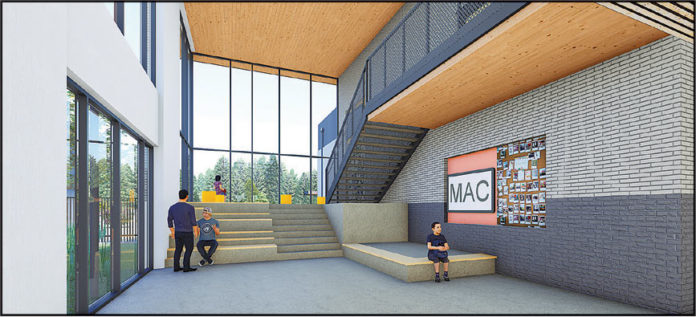
Tidying up the McCleary mess
Tidying expert Marie Kondo has inspired millions of people to discard junk, organize their lives and identify the things that spark joy. But when it comes to the mess that the Washington state Legislature created in its ill-executed attempt to provide full funding for education, even Marie might not be able to help. And the so-called McCleary fix – the Legislature’s answer to the lawsuit of the same name – has been anything but joyful for Washington school districts – or property owners.
Schools and taxpayers have been caught in the crosshairs of legislative attempts to meet the state’s constitutional paramount duty – ample funding for K-12 schools. The 2007 McCleary v. State lawsuit alleged that the state had failed to fulfill that obligation, and in 2012 the State Supreme Court agreed. Two years later, the court found the Legislature in contempt for lawmakers’ failure to demonstrate adequate progress toward fixing the problem.
When progress finally came, it arrived in the form of complex property tax changes. What lawmakers called the “levy swap” kicked off a rollercoaster of changes for both property owners and school districts.
How it affects you
Here in Clark County, property owners have witnessed volatility in their taxes in recent years as the result of these changes. The largest tweak to the state’s funding formula came in 2018, when the state implemented a dramatic increase in its school tax rate without adjusting local rates. You may remember that in this area, that translated to about 91 cents more per $1,000 of assessed property value.
In 2019, that increase was offset with a rollback of local levy rates, which were capped at $1.50 per assessed $1,000. This resulted in a net decrease in the combined amount going toward education. While it provided some relief to tax-fatigued property owners, it also helped force 253 of the state’s 295 school district budgets into the red. Shortages also have been compounded by employee contracts, increased health benefit costs and declines in student enrollment. Many districts, including those in Clark County, are being squeezed by multimillion-dollar shortfalls as a result. Some were forced to dip into their reserve funds to help cover the deficit. From a business viewpoint, you know this is not a sustainable solution.
Later in 2019, the Legislature changed its mind and raised the local levy lid by $1 to $2.50 per assessed $1,000. The rollercoaster prepared to surge once again. Property tax fluctuations in recent years also have been influenced by school districts’ bond measures for construction to address significant infrastructural needs – another funding responsibility that is largely reliant on local dollars.
Looking forward
School districts now face a difficult choice. They can live with devastating cuts to staff positions and programs as a result of huge deficits. They can risk failing to meet their communities’ expectations. Or, depending on the timing, they can return to local taxpayers to ask them to approve levies up to the $2.50 per $1,000 rate. Alternately, they can ask voters to say “yes” to new funding in the form of supplemental levies as a stopgap.
At least in the short term, districts will continue to rely on local levies to pay for positions such as teachers, counselors, security staff and nurses; support special education; sustain essential programs and services; and more. The state’s formula for determining how to fund school nurse positions, for example, says that 5,236 students must be enrolled in one elementary school before the state will pay for a single nurse. The bar for state funding of other positions is even higher. More than 216,000 students must be enrolled in a middle school before the state funds will cover a psychologist. Vancouver Public Schools estimates that it will subsidize special education costs from the local levy upwards of $6 million in 2020-21. Statewide, districts subsidize special education funding by an estimated $300 million. These students deserve better.
From the vantage point of the business world, you can appreciate the impact of schools on the local economy. Good schools are vital to strong property values. They prepare the future workforce and increase workers’ spending power. Workers with at least a high school diploma will on average earn thousands more over a year than those without a degree, according to BLS statistics. The lifetime earnings of a graduate are approximately $400,000 more than a high school dropout.
A year ago I urged legislators to enact fixes that could provide predictable, sustainable funding for Washington state’s public schools. Legislative action is required to prevent cuts to valued K-12 programs and staff positions, maintain smaller class sizes and help districts remain in good financial health.
Taxpayers, communities, families and, most of all, children do not deserve to be on the hook for flawed public policy. They all deserve better.
Dr. Steve Webb has been superintendent of Vancouver Public Schools since 2008. He was the 2016 Washington State Superintendent of the Year and one of four finalists for the National Superintendent of the Year. Reach him on Twitter at @SuptVPS or at 360-313-1000.


